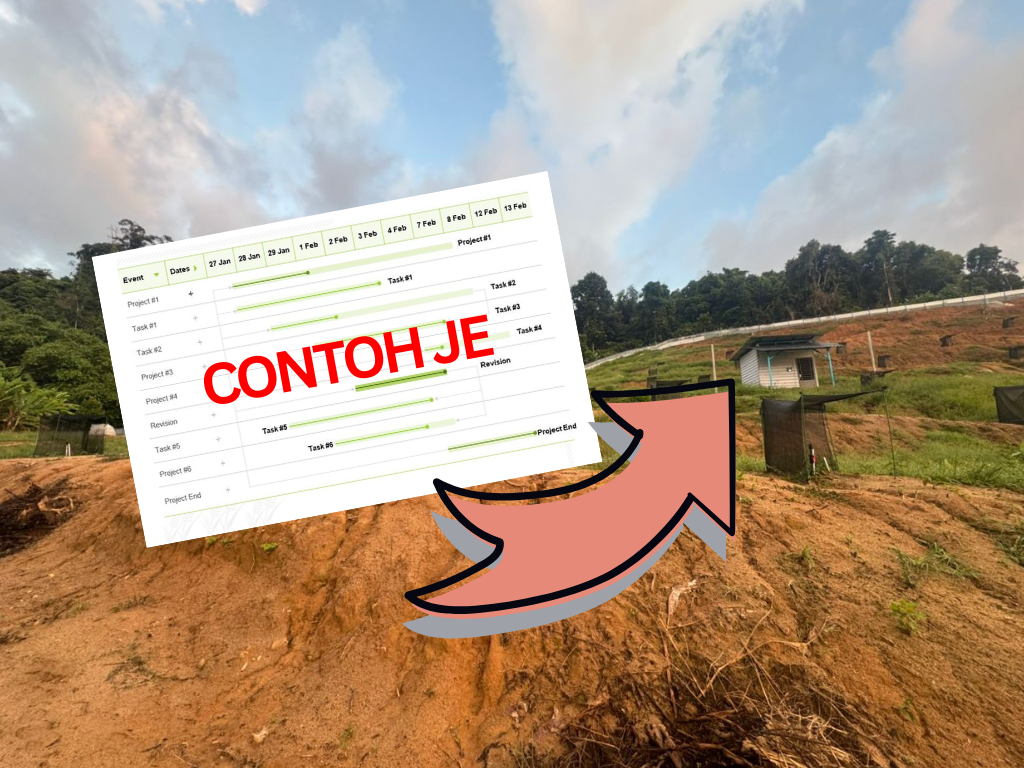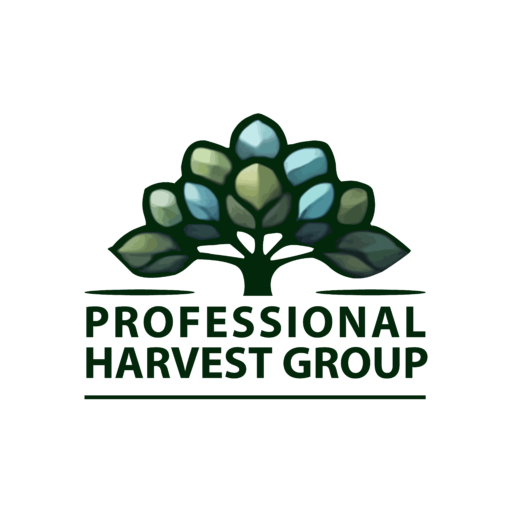Let’s talk with a consultant
Project Management For Durian Farming
Professional Harvest Group (PHG) provides end-to-end Project Management Services specifically designed for commercial durian farm development in Malaysia. From initial planning to final handover, we integrate agricultural know-how, regulatory expertise, and on-site execution management to ensure your project progresses efficiently, on time, and within budget.
Establishing a commercial durian estate involves managing multiple moving parts—site works, infrastructure development, water systems, planting schedules, workforce logistics, and compliance with agricultural standards. Without structured project oversight, delays, cost overruns, and operational inefficiencies are common.
Our project management approach is built around transparency, accountability, and measurable progress, with clear milestones, risk mitigation strategies, and active stakeholder coordination. Whether you’re developing a smallholding or a large-scale durian estate, PHG ensures your vision is executed with precision and professionalism.
Table of Contents
Request A Call Back
Understanding Project Management Services for Durian Farming in Malaysia

Professional Harvest Group (PHG) initiates each durian farm development project with a thorough strategic planning and feasibility assessment. This phase encompasses land suitability evaluation, financial forecasting, risk identification, and alignment with applicable Malaysian agricultural regulations. Our planning framework ensures that the project is commercially viable, environmentally sustainable, and aligned with the client’s long-term objectives—be it export-focused cultivation, wholesale supply, or land value maximization. We also evaluate logistical access, infrastructure potential, and long-term operational demands to provide a comprehensive development roadmap.
Following the planning stage, PHG establishes a detailed project schedule, cost framework, and procurement strategy. This includes the formulation of a work breakdown structure (WBS), timeline allocation, and budgetary controls across all key components—land preparation, infrastructure development, planting, irrigation, and workforce housing. We manage the tendering process, contractor selection, and vendor onboarding to ensure alignment with performance benchmarks and regulatory standards. Through continuous monitoring, we maintain control over timelines, budget adherence, and milestone achievement, ensuring that the project progresses with precision and accountability.
PHG provides full-time oversight of on-site development activities, ensuring disciplined execution and adherence to the approved project scope. This includes supervision of civil works, planting operations, irrigation installation, and all supporting infrastructure. Our project managers conduct routine inspections, verify materials and workmanship, and implement corrective actions when required. Emphasis is placed on quality assurance, occupational safety, and compliance with standards.
Upon nearing completion, PHG coordinates final project inspections, prepares full documentation, and manages the handover process. Deliverables include layout plans, technical drawings, infrastructure inventories, standard operating procedures (SOPs), and user guides for all installed systems. We ensure resolution of outstanding items through a structured snag list process and facilitate commissioning of utilities where applicable. Post-handover, clients may access additional support services such as operational training, farm management setup, and export readiness consultancy. Our objective is to deliver a fully functional, investment-grade durian estate.
Planning and Feasibility Phase
The Planning and Feasibility Phase serves as the foundation for a successful durian farm development. During this stage, project objectives are clarified, land development scenarios are modeled, and investment risks are assessed. PHG works closely with the client to define clear project scopes, align expectations, and assess regulatory permissions, such as state approvals, land category conversion (if applicable), and infrastructure access. We also identify the technical inputs—including water sourcing, terrain analysis, and planting density—that will shape the final design. This phase ensures all decisions are data-informed, minimizing uncertainty before financial or operational commitments are made.
-
Initial Client Consultation
– Understand client objectives, investment timeline, and desired farm scale or business model. -
Site Visit or Preliminary Land Assessment
– Evaluate land condition, location advantages, terrain, soil type, and infrastructure access. -
Regulatory Screening
– Identify applicable land use restrictions, zoning laws, ownership category (e.g., Malay Reserve), and foreign ownership eligibility. -
Technical Feasibility Study
– Analyze irrigation potential, topography, sunlight exposure, and planting viability for durians. -
Preliminary Budget Estimation
– Provide cost projections for land clearing, infrastructure, planting, labor, and certification compliance. -
Development Timeline Planning
– Outline a realistic project timeline including milestones for each major activity (site prep, planting, etc.). -
Risk Identification & Mitigation Plan
– Highlight potential risks (e.g., water shortage, labor issues, delays) and propose mitigation strategies. -
Investment Viability & Return Modeling
– Forecast yield potential, projected revenue, breakeven period, and ROI scenarios. -
Approval & Decision Point
– Present findings to the client for go/no-go decision before moving to the Development Phase.
Development and Execution Phase
In the Development and Execution Phase, planning transitions into action. This stage involves the coordinated rollout of physical works, including land clearing, infrastructure construction, and orchard establishment. PHG manages the mobilization of contractors, delivery of materials, and sequencing of tasks to ensure the project advances efficiently. Our focus shifts to execution discipline—ensuring that timelines are met, scope remains controlled, and quality is built into every step. We supervise the implementation of key systems such as irrigation networks, farm roads, and worker facilities, while also aligning planting activities with seasonal and agronomic requirements. Throughout, PHG provides structured reporting and transparent communication to keep stakeholders informed and accountable.
-
Site Mobilization
– Secure site access, deploy equipment, and set up temporary facilities for workers and storage. -
Land Clearing and Grading
– Remove existing vegetation, level terrain as required, and prepare plots for infrastructure and planting. -
Boundary Marking and Plot Layout
– Demarcate land boundaries, planting blocks, roadways, and utility zones based on the approved site plan. -
Construction of Basic Infrastructure
– Build internal farm roads, drainage systems, worker accommodations, fencing, and basic storage units. -
Water Infrastructure Installation
– Drill wells or tap into water sources; install irrigation tanks, pipes, pumps, and delivery systems. -
Soil Conditioning and Preparation
– Conduct soil amendments (e.g., liming, composting) and prepare planting holes to agronomic standards. -
Planting of Durian Trees
– Execute planting based on variety mix, spacing plan, and best practices for root establishment. -
Fertilization and Early Crop Maintenance
– Apply starter fertilizers, mulch, and implement initial pest control protocols. -
Supervision and Progress Monitoring
– Conduct daily site checks, resolve on-ground issues, and update clients with progress reports. -
Mid-Phase Quality Review
– Verify that infrastructure and planting are being completed to spec and identify any corrective actions needed.
Completion and Operational Readiness Phase
The Completion and Operational Readiness Phase focuses on ensuring the farm is fully functional, well-documented, and prepared for day-to-day management. At this stage, PHG conducts final inspections to verify that all works—planting, infrastructure, irrigation, and accommodations—are delivered to specification. We prepare detailed handover documentation, including planting maps, maintenance schedules, system manuals, and compliance records. Beyond construction, this phase includes operational setup: training staff, establishing early-stage Standard Operating Procedures (SOPs), and scheduling follow-up agronomic visits. PHG also ensures that the farm is aligned with certification pathways (e.g., myGAP) and is equipped to transition into ongoing operations with confidence and minimal disruption.
-
Final Inspection and Defect Rectification
– Conduct comprehensive site walkthroughs to identify incomplete or substandard works and issue a punch list for rectification. -
System Testing and Commissioning
– Test irrigation systems, drainage flow, structural soundness of infrastructure, and overall farm readiness for operations. -
Documentation and Handover Package Preparation
– Compile all relevant documents:-
Planting layout maps
-
Infrastructure as-built drawings
-
Irrigation schematics
-
Inventory lists
-
SOPs for maintenance and farm operations
-
-
Compliance and Certification Pre-Checks
– Conduct internal audits against standards such as myGAP to ensure readiness for external inspections. -
Staff Onboarding and Operational Training
– Brief farm supervisors and workers on daily routines, safety practices, and system operation. -
Setup of Operational Systems and Schedules
– Develop task calendars for fertilization, pest control, irrigation cycles, and record-keeping protocols. -
Client Orientation and Handover Meeting
– Present project outcomes, explain documentation, and transfer control of farm operations to the client. -
Post-Handover Advisory Support (Optional)
– Provide a transition period with technical support, farm visits, or remote consultations to address early-stage operational challenges.

